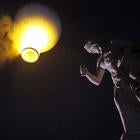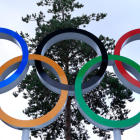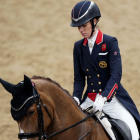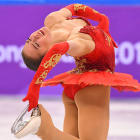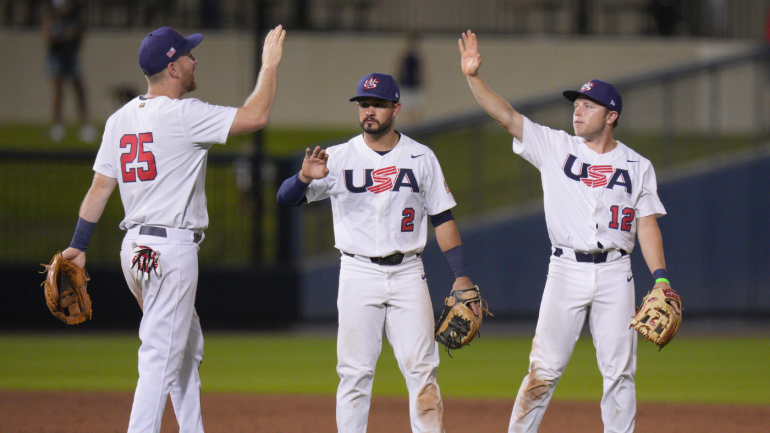
Arriving soon at a color television set near you will be the baseball program of the 2020 Tokyo Summer Olympics.
In 2021, baseball makes its vaguely anticipated return to the Games for the first time since 2008. Given that lengthy absence -- more on that below -- perhaps it's time to reacquaint ourselves with the ins and outs of Olympic baseball. Let us do just, and let us do just that right now.
Who's in the tournament?
Six teams will be vying for gold in Tokyo. Those six teams are:
- Japan (automatic berth as the host nation)
- United States (earned a spot by winning the Americas Qualifying Event)
- Israel (earned a spot by winning the Europe/Africa Qualifying Event held in September of 2019)
- Mexico (earned a spot by winning bronze at the 2019 WBSC Premier12 Event)
- South Korea (earned a spot by winning silver at the 2019 WBSC Premier12 Event)
- Dominican Republic (earned a spot by winning the Final Qualifying Tournament in June).
As for the dominating absence of Cuba, recent defections by some of the their best players have greatly weakened the island nation's standing within the sport. This marks the first time since baseball became a medal sport in 1992 that Cuba failed to qualify.
What's the format?
The Olympic baseball competition begins with the group stage involving two groups of three teams each. Within those groups, each team will play a round-robin schedule -- i.e., each team in a group plays each of the other two teams in that same group for a total of six games across both groups. Teams are then ranked based on the results of the group stage, and then the knockout stage begins.
In the knockout stage, teams play under a modified double-elimination format. The top two seeds from the group stage in essence get a "bye" to the one quarterfinal. Meantime, the two seeds and three seeds will play each other, and the winners of those two games will advance to the other quarterfinal. The losers of those games will go to the loser's bracket and remain in the running for a spot in the semifinals. The winner of each quarterfinal goes to one semifinal, while the other semifinal is populated by the two teams emerging from the loser's bracket.
The winner of each quarterfinal meets in the first semifinal game, and the winner of that contest advances to the gold medal game, The loser will be placed in the second semifinal and face a team advancing from the loser's bracket. The winner of that game will advance to the gold medal game, while the loser will play for the bronze medal.
For further clarity, here's a visual explainer of the format detailed above:
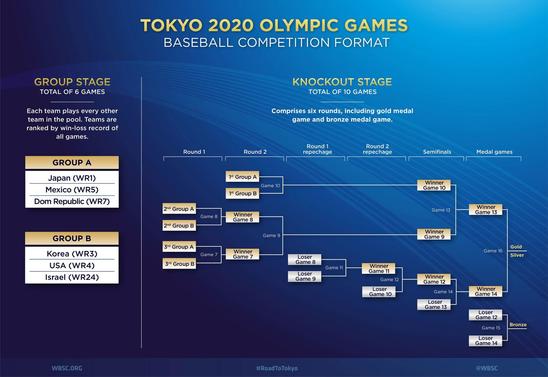
The 2021 tournament gets underway on July 27 and concludes with the gold medal game on Aug. 7. Here's the group stage schedule:
Tuesday, July 27
Group A: Dominican Republic vs. Japan, 11 p.m. ET
Thursday, July 29
Group B: Israel vs. South Korea, 6 a.m. ET
Group A: Mexico vs. Dominican Republic, 11 p.m. ET
Friday, July 30
Group B: United States vs. Israel, 6 a.m. ET
Group A: Japan vs. Mexico, 11 p.m. ET
Saturday, July 31
Group B: South Korea vs. United States, 6 a.m. ET
Who's the favorite to win gold?
Japan and South Korea enter the tournament as the favorites according to most observers because they're populating their rosters with players from their respective domestic major leagues -- NPB (Japan) and the KBO (South Korea) each cleared its players for Olympic participation, whereas MLB did not. The other four countries aren't doing that, although the U.S. has a respectable mix of semi-retired major leaguers and minor leaguers. Now for the odds (via William Hill Sportsbook):
- Japan: +150
- South Korea: +300
- United States: +300
- Dominican Republic: +600
- Mexico: +1000
- Israel: +2500
Olympic baseball history
Starting in 1904 at the St. Louis Games, baseball was an occasional presence at the Olympics, albeit as an exhibition. That was the case until 1988 in Seoul, when baseball earned "demonstration" status. Finally in 1992 at the Barcelona Summer Olympics baseball became a medal sport, and it continued as such through the 2008 Beijing Games. In 2005, however, baseball and softball were dropped from the 2012 Summer Olympiad via secret ballot among International Olympic Committee (IOC) members. The surprise decision meant that baseball and softball were the first sports to be removed from the Olympic program since polo in 1936. "In the case of baseball," then IOC president Jacques Rogge said at the time, "the best athletes are not competing, and the major athletes perform in an environment where doping controls are not what we have in the Olympic world."
Olympic baseball had been the province of amateurs until pros were allowed starting in 2000. However, active U.S. major leaguers did not participate, and that was the sticking point for the IOC. To MLB's credit, they took the Olympic exile as an opportunity to launch the World Baseball Classic, which has been a welcome addition to the landscape of the sport. Had Olympic baseball continued uninterrupted, then the WBC might never have come along.
That said, don't take the return of baseball to the Olympics in 2021 to be a sign of things to come. The inclusion of the sport in the Tokyo Games has much to do with Japan's zeal for the sport -- MLB still hasn't cleared players at the highest level to participate -- and an Olympics in Japan without baseball would make very little sense. Not surprisingly, baseball is not on the docket for the 2024 Olympics in Paris. It is, however, expected to return again in 2028 for the Los Angeles Games. Until players from the U.S. major leagues are allowed to play, baseball is likely to remain an intermittent presence in the Olympics based on the host country's enthusiasm -- or lack thereof -- for the sport.
And in conclusion, here's the medal history of Olympic baseball:
| Olympics | Gold | Silver | Bronze |
|---|---|---|---|
1992 - Barcelona | Cuba | Taiwan | Japan |
1996 - Atlanta | Cuba | Japan | United States |
2000 - Sydney | United States | Cuba | South Korea |
2004 - Athens | Cuba | Australia | Japan |
2008 - Beijing | South Korea | Cuba | United States |








